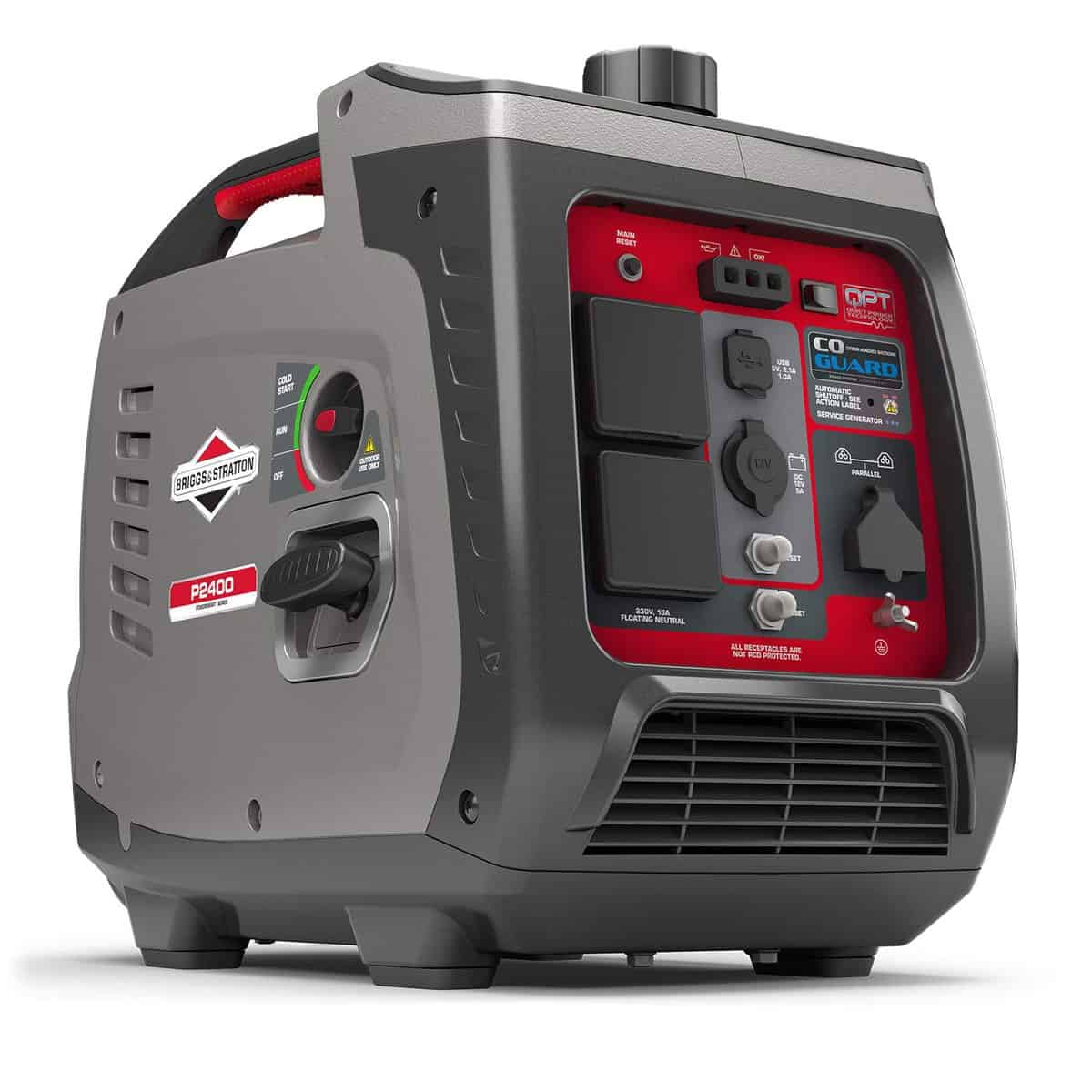
Portable generators have become an essential piece of equipment for homeowners, businesses, and outdoor enthusiasts alike, providing reliable power whenever and wherever it’s needed.
Despite their versatility, understanding the durability of these machines is crucial in ensuring long-lasting performance and minimizing potential hazards.
In this blog post, we’ll explore how portable generators work, factors that affect their longevity, best practices for maintenance and extension of their lifespans as well as common issues impacting generator durability.
Key Takeaways
- Portable generators work by utilizing an engine and an alternator to convert mechanical energy into electrical energy, with the amount of power generated dictated by their wattage rating.
- Factors that affect the durability of portable generators include the quality of materials used, frequency of usage, maintenance and care, as well as environmental conditions such as dust and moisture.
- Best practices for maintaining and extending the life of your portable generator include regular cleaning and servicing, proper fuel and oil usage, suitable storage location, avoiding overloading, and choosing a high-quality generator. It is also important to follow manufacturer guidelines for maintenance schedules and procedures.
- Portable generators work by utilizing an engine and an alternator to convert mechanical energy into electrical energy, with the amount of power generated dictated by their wattage rating.
- Factors that affect the durability of portable generators include the quality of materials used, frequency of usage, maintenance and care, as well as environmental conditions such as dust and moisture.
- Best practices for maintaining and extending the life of your portable generator include regular cleaning and servicing, proper fuel and oil usage, suitable storage location, avoiding overloading, and choosing a high-quality generator. It is also important to follow manufacturer guidelines for maintenance schedules and procedures.
Understanding Portable Generators: How They Work
Portable generators are a convenient and reliable source of power during power outages, camping trips, or even just to have as a backup for home use. At their core, portable generators work by utilizing an engine and an alternator to convert mechanical energy into electrical energy.
The amount of power generated by these handy machines is dictated by their wattage rating. Essentially, higher wattage means that more items can be powered simultaneously.
For example, if you have a 3000-watt portable generator at your disposal, it gives you the flexibility to run various combinations of small household appliances like refrigerators and microwaves or multiple tools in a workshop setting.
To optimize performance and ensure longevity, it’s crucial for users like us-generator owners-to familiarize ourselves with some key maintenance practices tailored specifically for these versatile machines.
This includes regular servicing such as oil changes, filter replacements, spark plug inspections-just to mention but a few-as well as adhering strictly towards manufacturer guidelines unique to each model purchased.
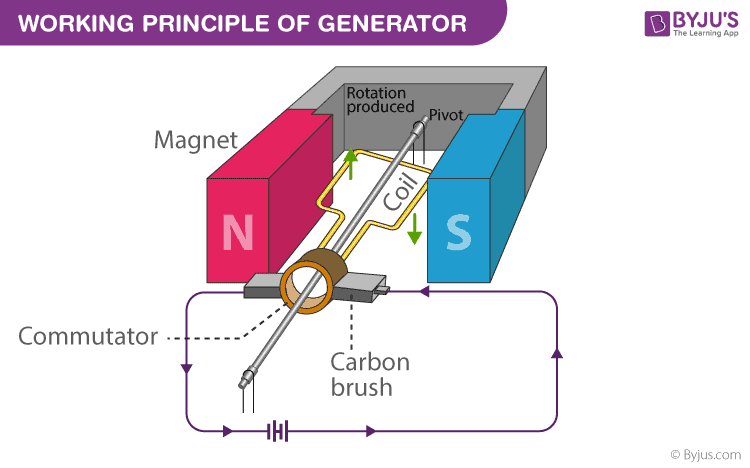
Image Credit: byjus
Factors That Affect The Durability Of Portable Generators
The durability of portable generators can be affected by several factors, including the quality of materials used, frequency of usage, maintenance and care, as well as environmental conditions.
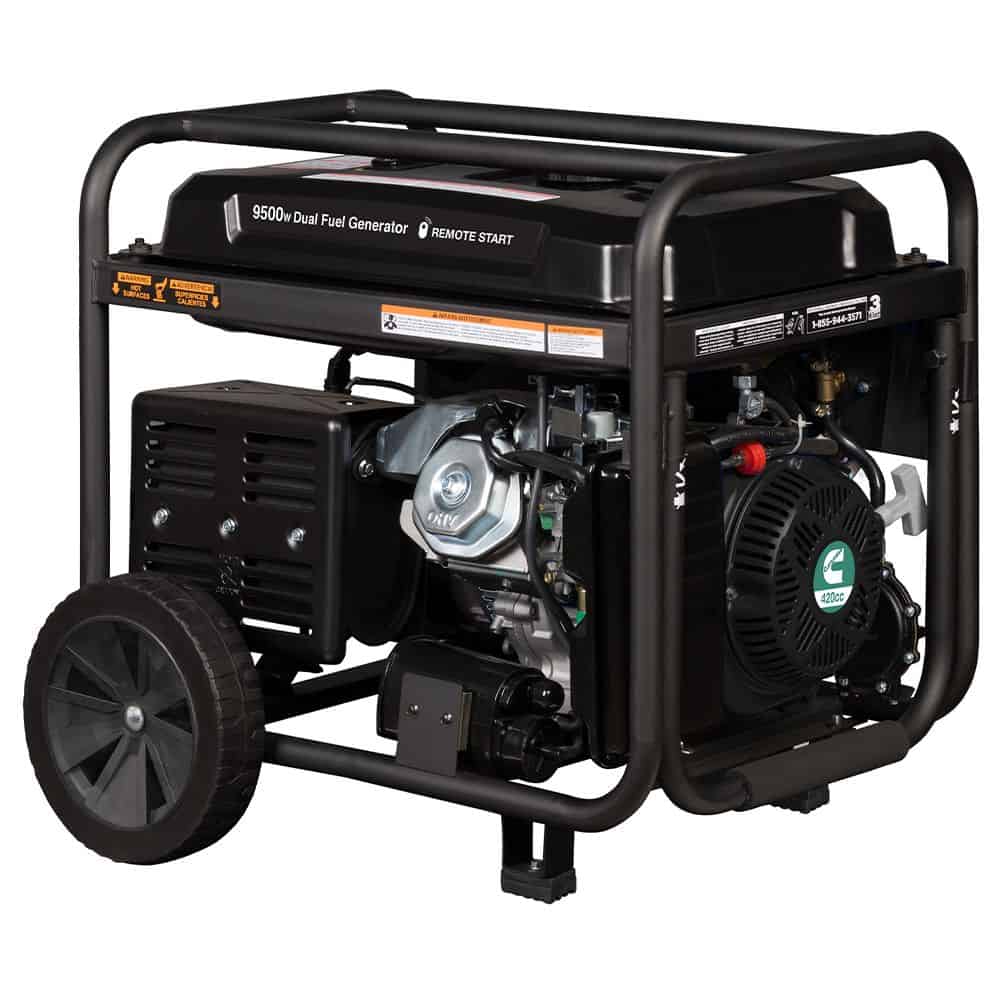
Image Credit: onguardgenerators
Quality Of Materials
Investing in a portable generator with high-quality materials is essential for ensuring its durability and long-term performance. The quality of the materials used in the construction of a generator directly impacts its resistance to damage from environmental factors such as harsh weather conditions, corrosion, and wear-and-tear.
As an experienced portable generator owner myself, I’ve noticed that taking time to assess the material quality not only results in more reliable operation but also reduces maintenance costs over time.
One example would be generators featuring copper windings within their alternators – these tend to have greater electrical conductivity and efficiency compared to those using aluminum windings.
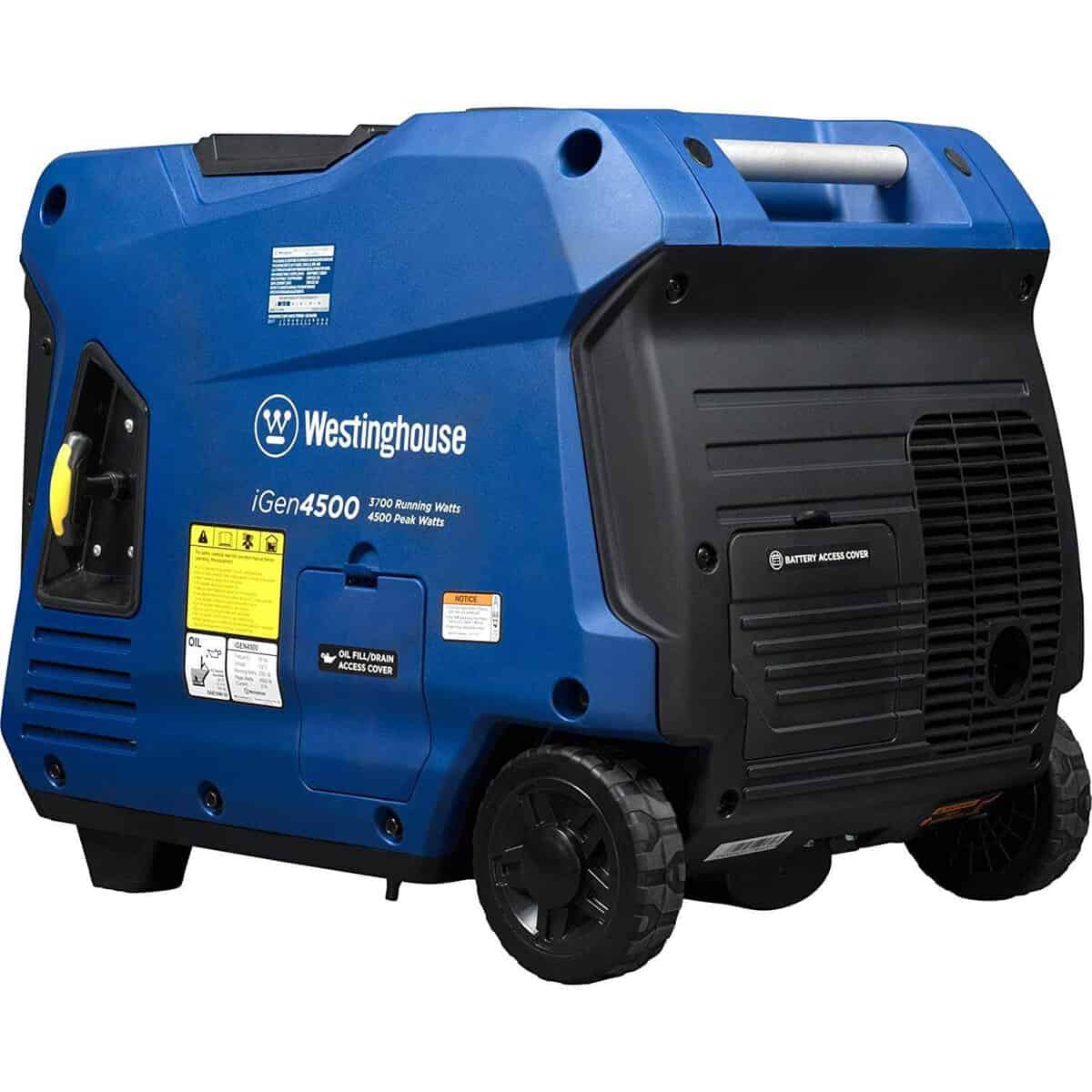
Image Credit: thegeneratorpower
Frequency Of Usage
As a portable generator owner, it’s crucial to understand the role that frequency of usage plays in the durability and overall lifespan of your equipment.
Just like any other mechanical device, continuous use can cause wear and tear on your generator’s components, ultimately affecting its performance, safety, and longevity.
To ensure that you extend the life of your beloved portable generator while achieving optimal efficiency levels throughout its use, it is important to recognize when breaks should be taken so as not to exceed its operation hours capacity.

Image Credit: thewirecutter
Maintenance And Care
As a portable generator owner, proper maintenance and care are essential for ensuring your equipment continues to function optimally throughout its lifespan.
Simple tasks such as regular oil changes and filter replacements can make all the difference in keeping your generator running smoothly. Neglecting these basic maintenance practices could lead to engine problems, electrical issues, or fuel system failures that could have otherwise been prevented.
It’s also crucial to store your portable generator correctly when not in use, especially during extreme weather conditions. For instance, you should avoid exposing it to moisture or dust as this may cause damage over time.
Regular inspection and care by a qualified technician can help detect any potential problems early on before they escalate into more significant issues that require costly repairs or even replacement of the entire unit.
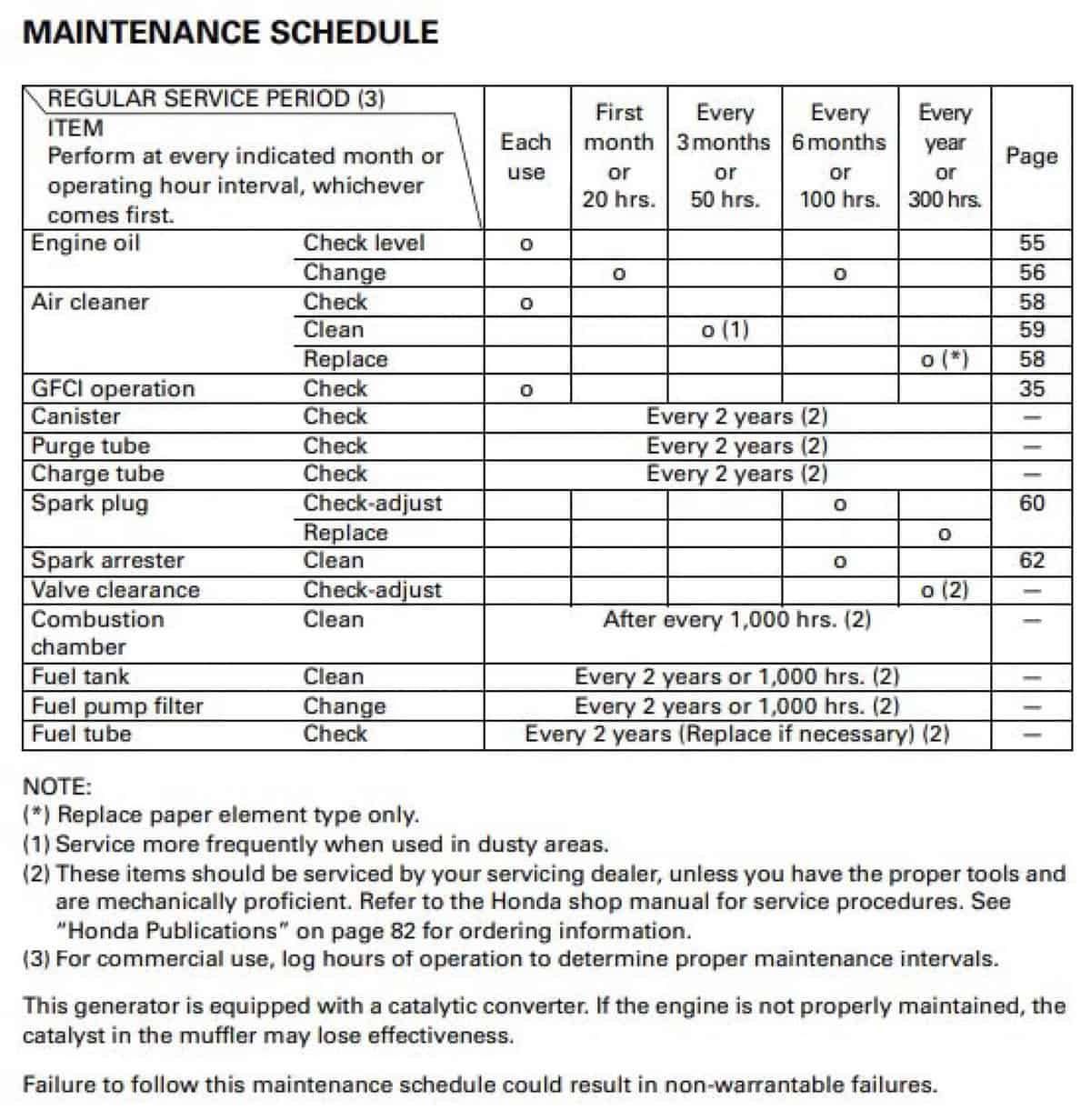
Environmental Conditions
As a portable generator owner, it’s important to understand that the environment can play a big role in how well your generator operates and how long it lasts. Dust and moisture are common culprits that can damage sensitive parts of your machine, leading to costly repairs or even replacement down the line.
To keep your portable generator running at its best for as long as possible, try to store it in a cool, dry place when not in use. If you must operate it outdoors in harsh conditions or extreme temperatures, be sure to follow the manufacturer’s guidelines for maintenance and upkeep.
Best Practices For Maintaining And Extending The Life Of Your Portable Generator
Regular cleaning and servicing, proper fuel and oil usage, suitable storage place, avoiding overloading, and choosing a high-quality generator are all essential best practices for maintaining and extending the life of your portable generator.
Regular Cleaning And Servicing
As a portable generator owner, regular cleaning and servicing is a crucial part of ensuring its durability. Dust and moisture can accumulate over time, causing damage to the mechanical components of the generator.
That’s why routine maintenance tasks such as cleaning filters, checking oil levels, and inspecting connections are essential to keep your generator running smoothly.
For example, changing the oil every 50-100 hours of operation or at least once per year will prevent it from rusty conditions that could lead to engine failure.
It’s also important to follow manufacturer guidelines for maintenance schedules and procedures in order to ensure top performance and extend the lifespan of your equipment.
Proper Fuel And Oil Usage
To ensure that your portable generator runs smoothly and lasts a long time, it’s crucial to use the right kind of fuel and oil. Check the manufacturer’s guidelines to know which type of fuel is suitable for your generator.
Changing the oil regularly is also vital for maintaining reliability and extending the life of your generator. Most new generators require their first oil change after just 25 hours, and after that, it should be changed every 50-200 hours of operation depending on usage.
Using high-quality oil not only promotes efficient performance but also protects against rusting and ensures longer engine life as well.
Suitable Storage Place
One of the most critical factors in ensuring the durability of your portable generator is finding an appropriate storage location. The ideal spot would be a cool, dry place that’s not exposed to direct sunlight or harsh weather conditions like rain and snow.
Rusting is one of the leading causes of generator malfunction, so make sure to store your device in a clean environment that’s free from moisture and dust.
A good example would be placing it in a garage or shed with proper ventilation.
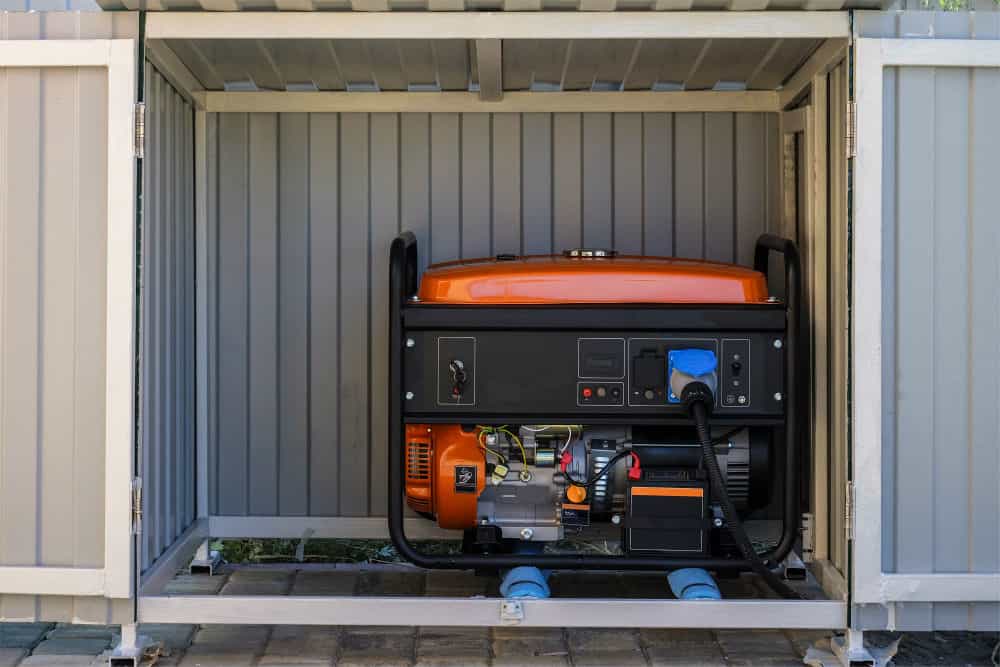
Image Credit: cloakandstore
Avoiding Overloading
When using a portable generator, it’s essential to avoid overloading the unit as it can lead to extensive damage and reduced durability. Overloading happens when you connect too many electrical appliances or devices that exceed the maximum wattage capacity of your generator.
This could result in blown fuses, damaged engines, and may even cause serious injury or fire hazards. To prevent this from happening, always calculate the total power requirements of all your equipment before connecting them to your portable generator.
Regular inspections by a qualified technician are crucial to monitor your portable generator’s performance and ensure it remains in good working condition. Neglecting routine maintenance can cause hard starting issues with the generator due to clogged air filters or deteriorated spark plugs.
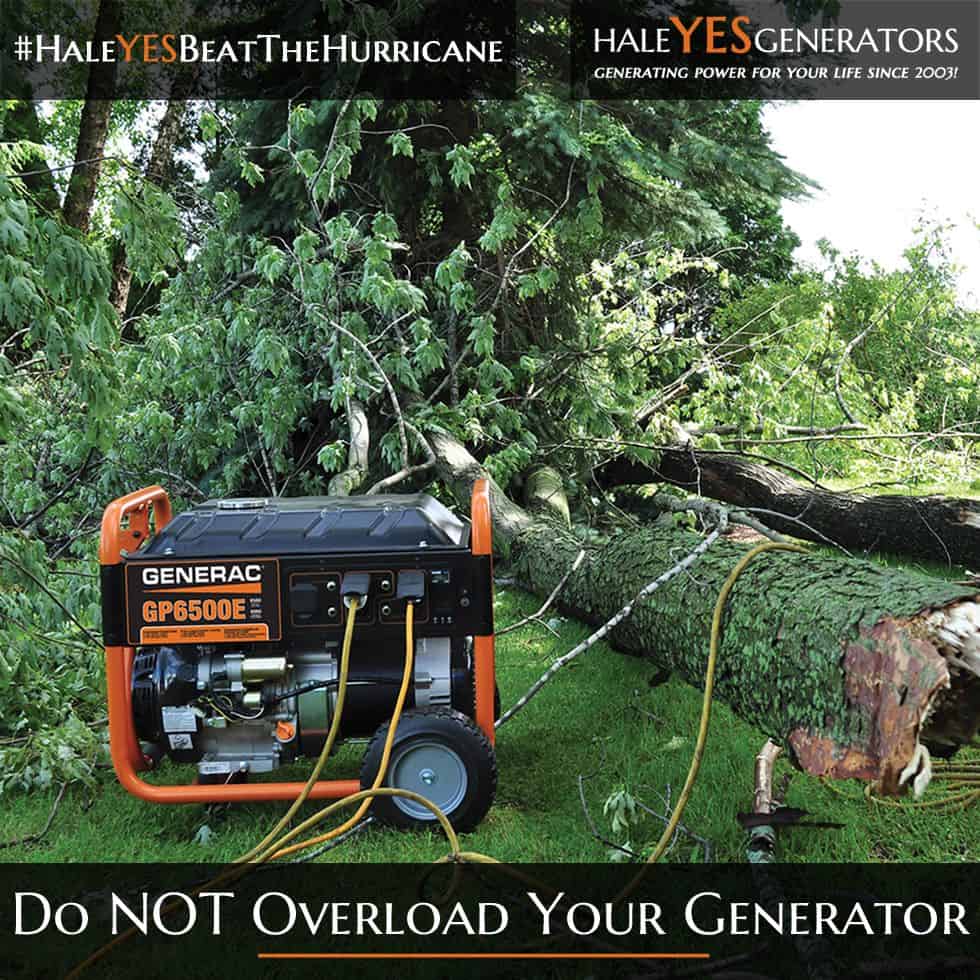
Image Credit: pinterest
Choosing A High-quality Generator
When choosing a portable generator, it is important to prioritize the quality of the materials used in its construction. Look for generators that have full-frame steel or high-quality materials to ensure they can withstand harsh environmental conditions and have a long lifespan.
It’s also important to consider the manufacturer’s guidelines for maintenance and usage, as well as selecting a generator with suitable wattage output for your energy needs.
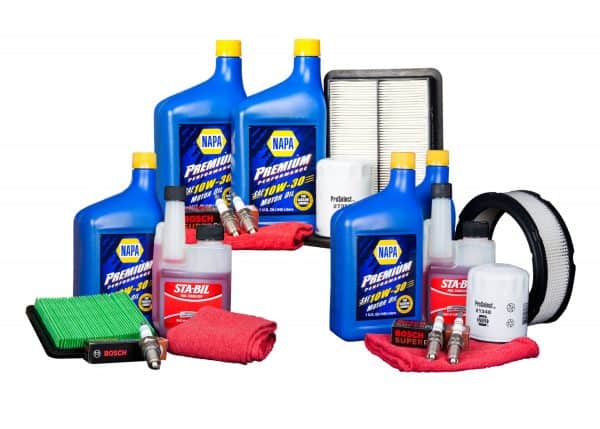
Image Credit: iscsales
Common Issues That Affect The Durability Of Portable Generators
Several common issues can affect the durability of portable generators, including engine problems, electrical issues, and fuel system failures.
Engine Problems
As a portable generator owner, engine problems are some of the most common issues that you may encounter. These can be caused by factors such as overloading, poor maintenance practices, or environmental conditions.
To prevent these issues, it’s important to follow manufacturer guidelines for regular service and upkeep of your generator. This includes checking oil levels and coolant levels regularly, changing the air filter when needed using mild detergent and warm water if necessary or replacing foam filters altogether when they get clogged with debris or dust accumulation over time.
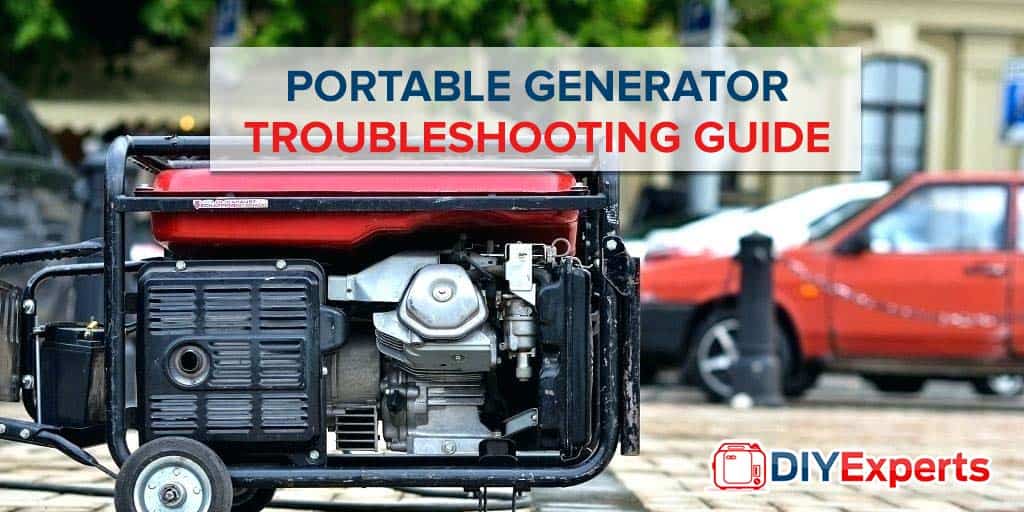
Image Credit: elephantenergy
Electrical Issues
As a portable generator owner, you may encounter some electrical issues that can affect the durability of your equipment. One common problem is short circuits caused by damaged wiring or overloaded circuits.
This can damage your generator’s electrical components and reduce its lifespan. Another issue is rusty connections, which can cause poor electrical conductivity and lead to corrosion.
Additionally, proper fuel-powered generators should be chosen based on energy needs while keeping in mind environmental codes such as emissions and noise levels requirements.
With the right preventive maintenance practices like changing engine oil regularly using high-quality fuel and oil alongside suitable storage place also aid in ensuring it lasts long enough before replacement models are considered.
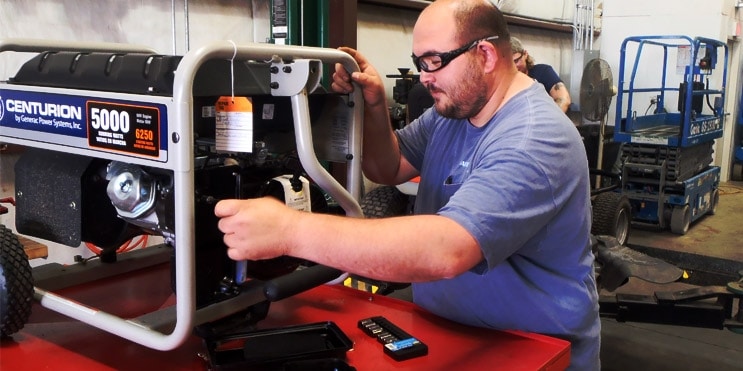
Image Credit: mygenerator
Fuel System Failures
As a portable generator owner, you must be aware that fuel system failures are one of the common issues that can affect your generator’s durability. This is usually caused by stagnant fuel, clogged lines or filters, and degraded gasoline due to moisture or other contaminants.
It is essential to maintain proper oil and filter changes, prevent water accumulation in the fuel tank, and refill with high-quality fuel regularly.
It’s crucial to keep an eye out for symptoms like difficulty starting your generator or decreasing power output as they might indicate a problem with your fuel system. To avoid such issues altogether, make sure you follow manufacturer guidelines on maintenance schedules and carry out necessary repairs promptly when required.
Additional Considerations For Choosing A Durable And Efficient Portable Generator
Consider factors such as generator size and power output, inverter vs. Gas
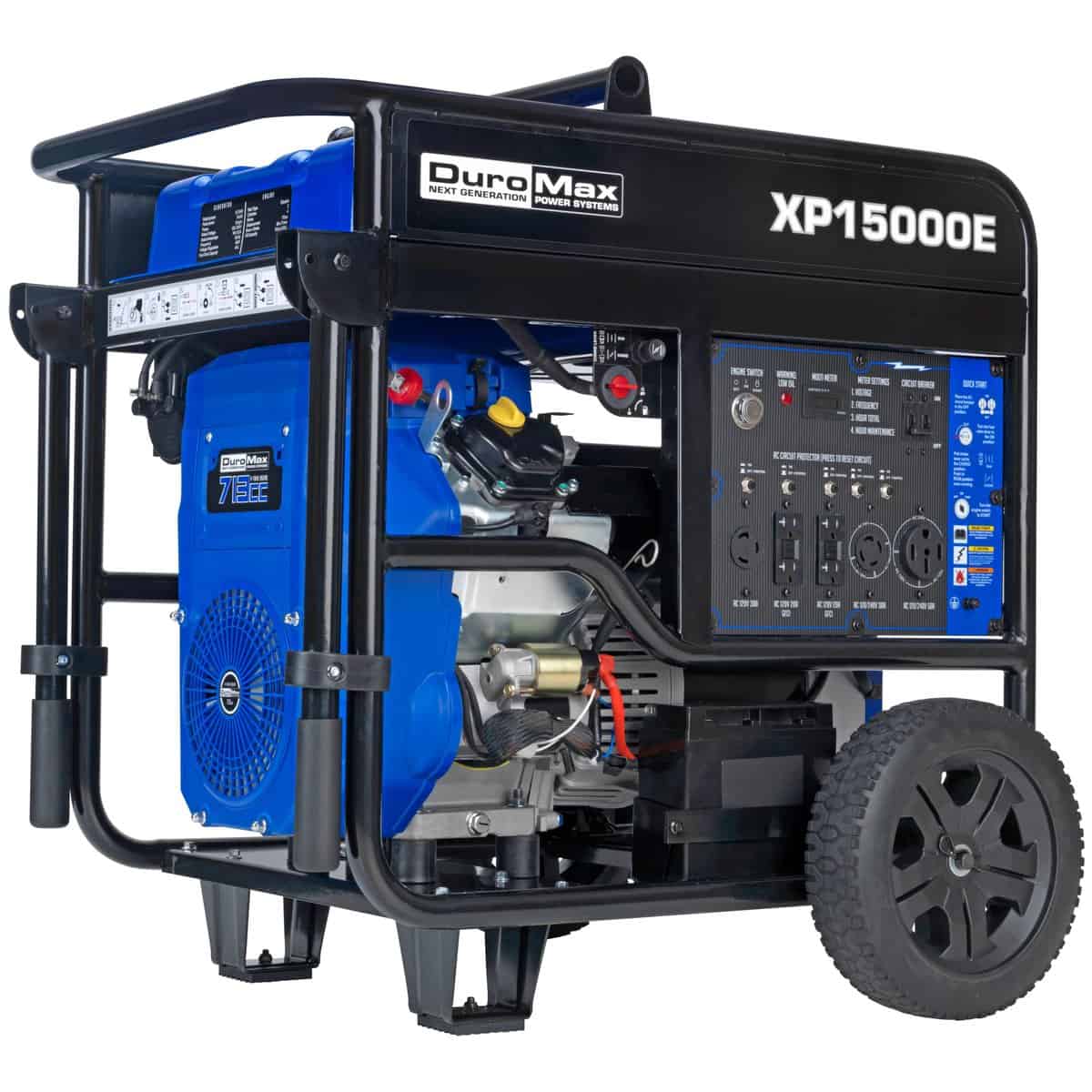
Image Credit: bestportablepowerstation
Generator Size And Power Output
Choosing the right size generator and power output can be daunting, but it’s crucial to ensure your portable generator meets your energy needs. To calculate the wattage you need, add up the running watts of all your appliances and tools and choose a generator that can handle at least 20% more than the total wattage needed.
For example, if you need a generator for emergency backup power for your home, consider generators with output capacities between 7,000 to 10,000 watts or higher. On the other hand, if you only need it for small outdoor activities or camping trips, go for generators with outputs ranging from 1,500 to 3,500 watts.
Always keep in mind that choosing a high-wattage generator will consume more fuel and may cost more upfront.
When investing in a portable generator look out for its Continuous Power Rating (CPR) which indicates how long it can operate at full capacity without overheating or short-circuiting.
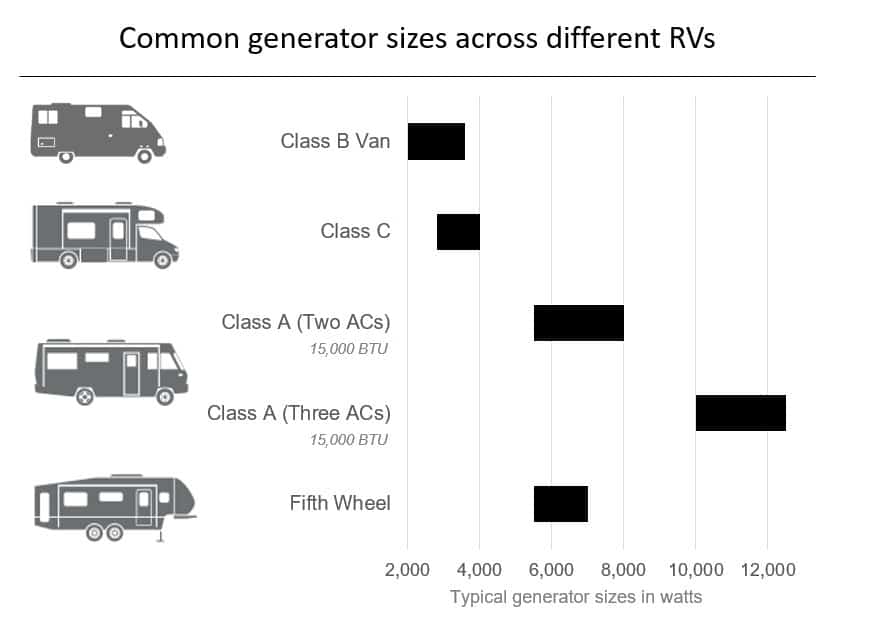
Image Credit: cummins
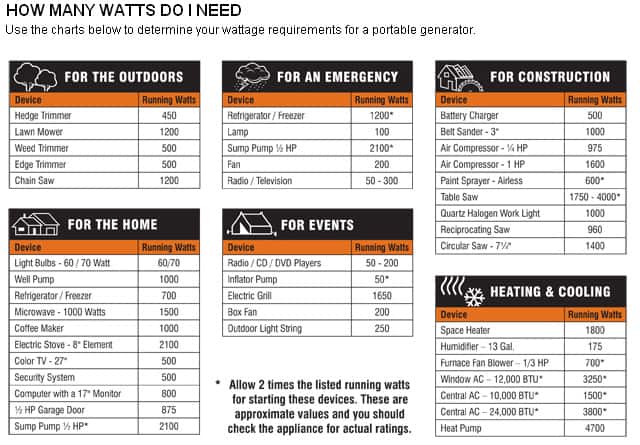
Image Credit: woodhyrst
Inverter Vs. Traditional Generators
If you’re considering purchasing a portable generator, choosing between traditional and inverter generators can be overwhelming. Traditional generators tend to be more affordable and powerful, making them ideal for heavy-duty applications such as construction sites or large events.
Inverter generators are smaller and quieter while providing stable power that is safe for sensitive electronics like laptops or smartphones. They are also highly efficient due to their electronic circuitry which adjusts the engine speed depending on the load required.
Although they may not offer the same amount of power as traditional generators, inverter models are ideal for home backup power during an outage or any situation where quiet operation is necessary.
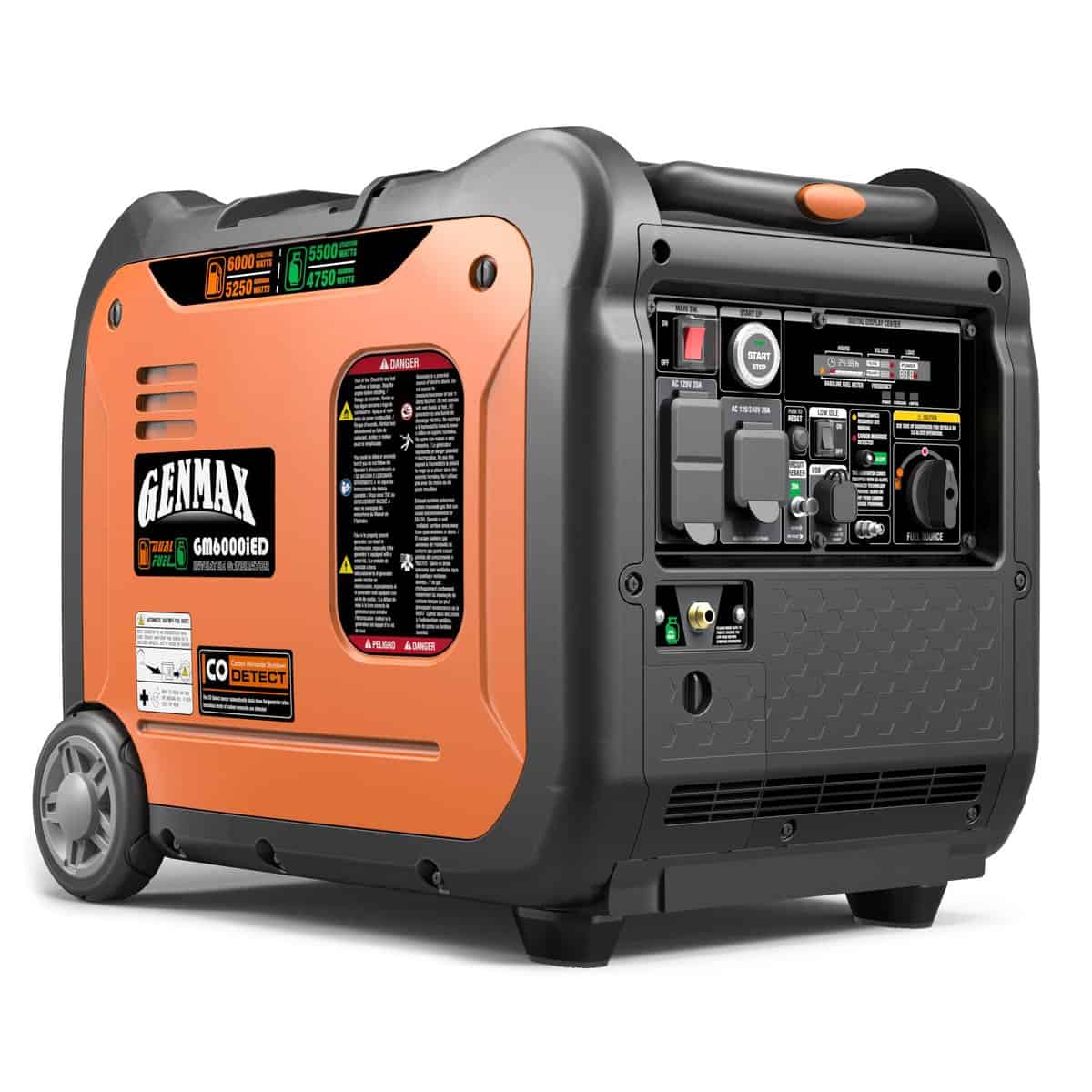
Image Credit: genmax
Fuel Type Options
Choosing the best fuel type for your portable generator will depend on various factors such as cost, availability, and reliability. Gasoline is the most common and readily available fuel option, but it can be expensive and has a shorter shelf life compared to other fuels.
Diesel generators are more efficient and reliable but come at a higher price point. Propane generators provide cleaner burning fuel with less emissions than gasoline or diesel options while natural gas generators offer long-term cost savings if you have access to a natural gas supply line.
Image Credit: aggreko
Image Credit: globalpwr
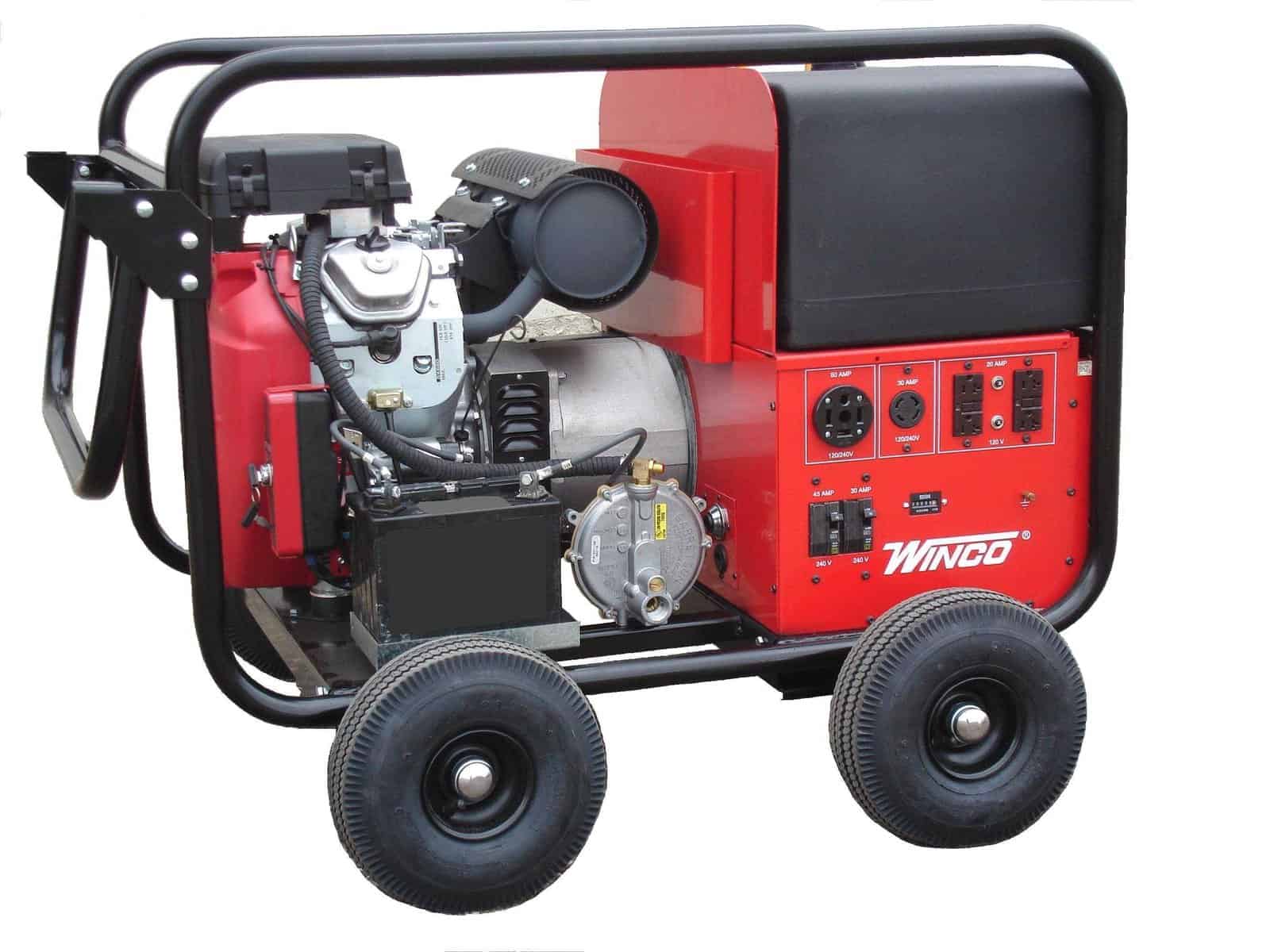
Image Credit: coloradostandby
Noise Levels
As a portable generator owner, it’s important to consider the noise levels of your equipment. Generators can be loud, which can be particularly bothersome if you have neighbors nearby or are using the generator in a public area.
Inverter generators tend to produce less noise than traditional generators, making them an excellent choice for those who value quiet operation. However, silenced generators are even quieter and may be preferable if you need a very low noise output.
It’s also worth noting that some of the best portable generators on the market today prioritize quieter operation alongside high performance- such as Honda generator.
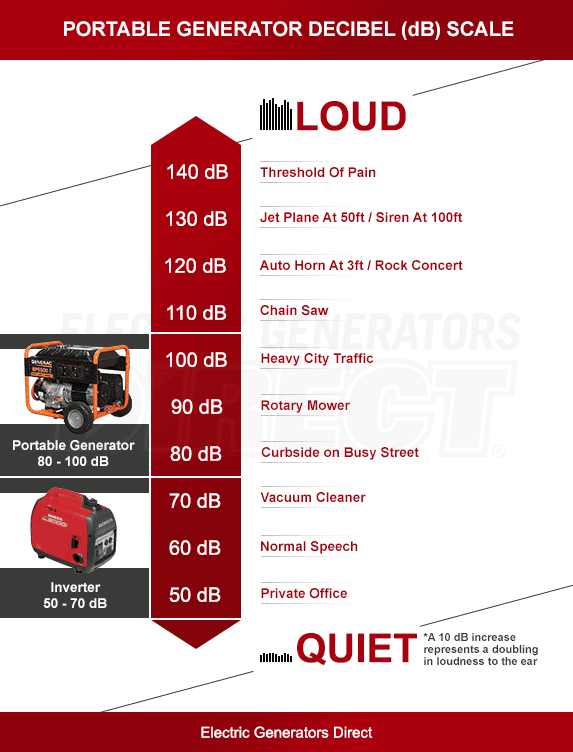
Image Credit: electricgeneratorsdirect
Eco-friendliness
As a portable generator owner, it’s important to keep in mind the impact that your generator has on the environment.
One way to prioritize sustainability is by opting for an inverter generator, which uses advanced technology to provide clean power with less fuel consumption.
Additionally, considering factors such as the type of fuel used and maintenance practices can further reduce your impact on the environment.
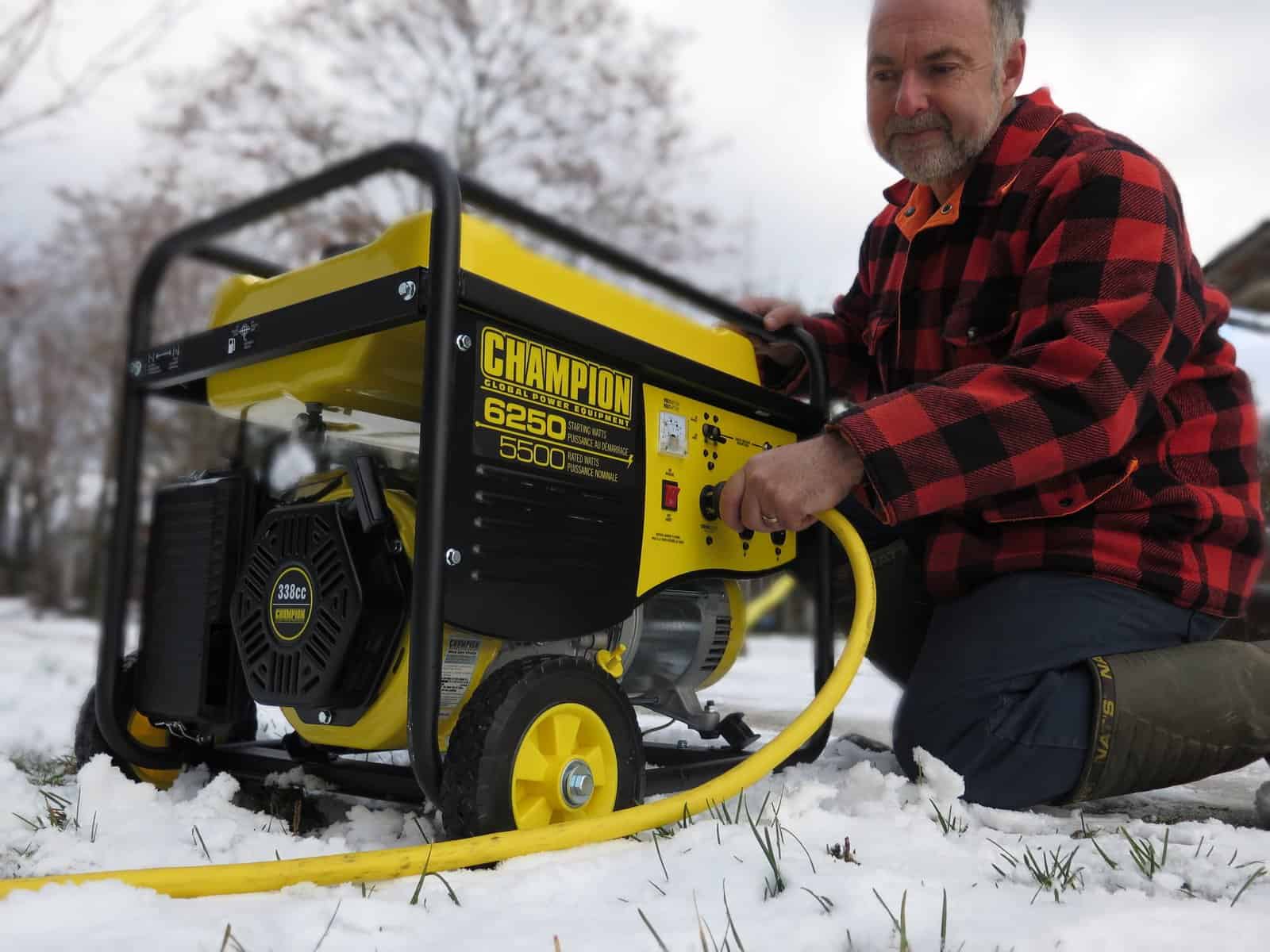
Image Credit: baileylineroad

Image Credit: cat

Image Credit: desertcart
Conclusion
To ensure the longevity of your portable generator, it’s essential to understand how it works and what factors can affect its durability. Regular maintenance, proper fuel and oil usage, suitable storage location, and avoiding overloading are all important practices.
Environmental conditions such as dust and moisture should also be considered. Choosing a high-quality generator that meets your energy needs is key.
Battery backup systems, solar generators or wind turbine generators are alternatives to traditional fuel-powered models. Remember to always follow manufacturer instructions and take appropriate safety precautions when operating a portable generator to avoid serious injury or carbon monoxide poisoning
How long can I expect a portable generator to last?
The lifespan of a portable generator can vary greatly depending on several factors including the quality and brand, usage frequency and conditions such as weather exposure. Generally speaking, well-maintained generators should last between 10-20 years.
Can I use my portable generator in harsh weather conditions?
While most modern-day generators are built to withstand various weather conditions, it is always recommended to protect your unit from rain or snow by using an overhead shelter or cover during operation.
What types of maintenance do I need to perform regularly on my portable generator?
Routine maintenance tasks for your generator include changing the oil and air filter after every 50 hours of runtime, inspecting spark plugs regularly for corrosion or wear and storing the unit in a dry place when not in use.
Are there any safety precautions I should take when operating my portable generator?
Yes! Always make sure that your generator is placed on level ground with proper ventilation to prevent carbon monoxide poisoning. Additionally, never overload the engine beyond its capacity which may cause overheating or damage to electrical equipment connected to it including appliances, tools or devices tied into power distribution systems within homes/buildings etc..





